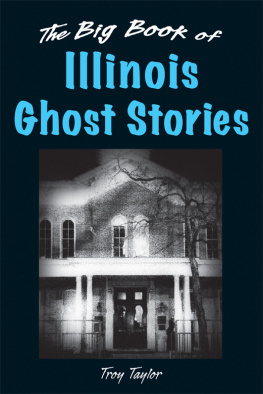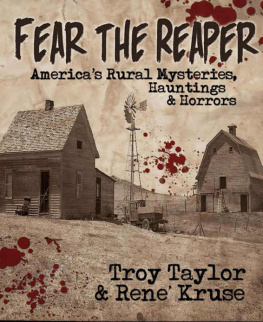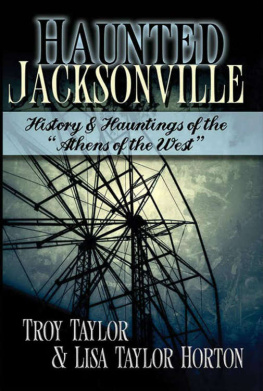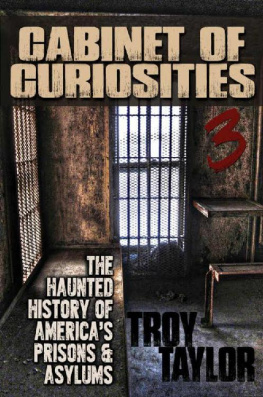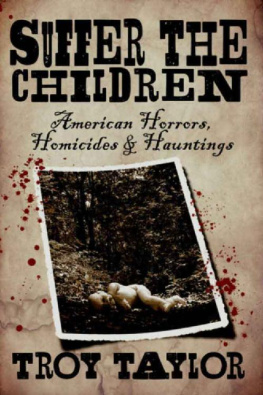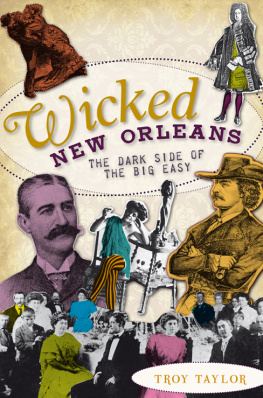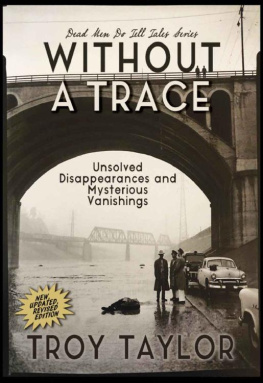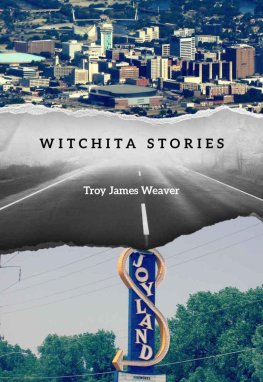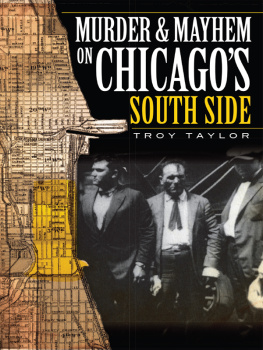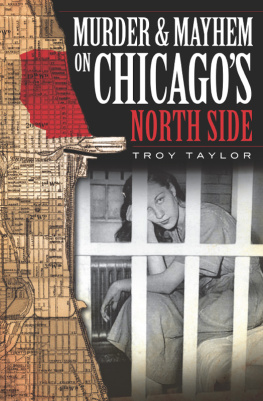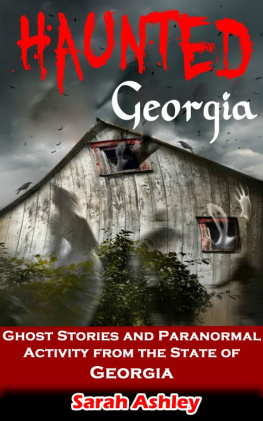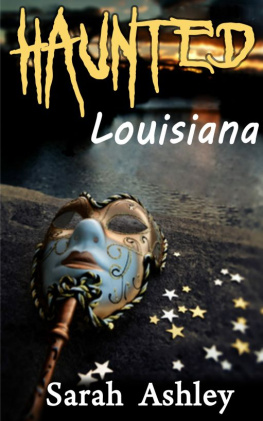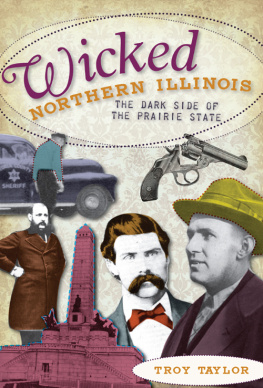Troy Taylor - The Big Book of Illinois Ghost Stories
Here you can read online Troy Taylor - The Big Book of Illinois Ghost Stories full text of the book (entire story) in english for free. Download pdf and epub, get meaning, cover and reviews about this ebook. year: 2009, publisher: Stackpole Books, genre: Detective and thriller. Description of the work, (preface) as well as reviews are available. Best literature library LitArk.com created for fans of good reading and offers a wide selection of genres:
Romance novel
Science fiction
Adventure
Detective
Science
History
Home and family
Prose
Art
Politics
Computer
Non-fiction
Religion
Business
Children
Humor
Choose a favorite category and find really read worthwhile books. Enjoy immersion in the world of imagination, feel the emotions of the characters or learn something new for yourself, make an fascinating discovery.
- Book:The Big Book of Illinois Ghost Stories
- Author:
- Publisher:Stackpole Books
- Genre:
- Year:2009
- Rating:3 / 5
- Favourites:Add to favourites
- Your mark:
- 60
- 1
- 2
- 3
- 4
- 5
The Big Book of Illinois Ghost Stories: summary, description and annotation
We offer to read an annotation, description, summary or preface (depends on what the author of the book "The Big Book of Illinois Ghost Stories" wrote himself). If you haven't found the necessary information about the book — write in the comments, we will try to find it.
Troy Taylor: author's other books
Who wrote The Big Book of Illinois Ghost Stories? Find out the surname, the name of the author of the book and a list of all author's works by series.
The Big Book of Illinois Ghost Stories — read online for free the complete book (whole text) full work
Below is the text of the book, divided by pages. System saving the place of the last page read, allows you to conveniently read the book "The Big Book of Illinois Ghost Stories" online for free, without having to search again every time where you left off. Put a bookmark, and you can go to the page where you finished reading at any time.
Font size:
Interval:
Bookmark:

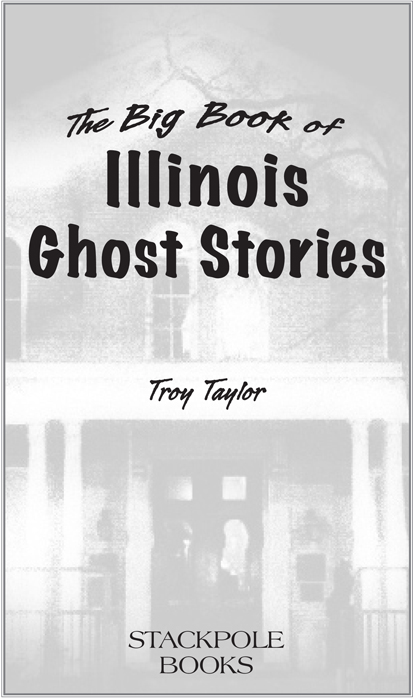
Copyright 2009 by Stackpole Books
Published by
STACKPOLE BOOKS
5067 Ritter Road
Mechanicsburg, PA 17055
www.stackpolebooks.com
All rights reserved, including the right to reproduce this book or portions thereof in any form or by any means, electronic or mechanical, including photocopying, recording, or by any information storage and retrieval system, without permission in writing from the publisher. All inquiries should be addressed to Stackpole Books.
Printed in the United States of America
10 9 8 7 6 5 4 3 2 1
FIRST EDITION
Library of Congress Cataloging-in-Publication Data
Taylor, Troy.
The big book of Illinois ghost stories / Troy Taylor. 1st ed.
p. cm.
Includes bibliographical references (p. ).
ISBN-13: 978-0-8117-0504-2 (hardcover)
ISBN-10: 0-8117-0504-8 (hardcover)
1. GhostsIllinois. I. Title.
BF1472.U6T3958 2009
133.109773dc22
2009009006
Introduction
I llinois is a very haunted place. Now that we have that out of the way, we have to address the questions that always follow such a pointed and matter-of-fact statement about the ghostly denizens of the Prairie Statequestions like, why is it so seemingly haunted? If forced to choose a single reason, it would likely be the violent, bloody, and often tragic history of the state. Ghosts and hauntings are born from violence, murder, and bloodshed. The tragedies of yesterday often beget the ghost stories of today.
Illinois was, in many ways, born in blood. From the Indian massacres of the War of 1812 to the feuds and vendettas in the late 1800s, there was a long history of violence and death written in blood during the early days of the state. During the early 1800s, when it was sparsely populated, Illinois was often the scene of open crime. Outlaws, fleeing in desperation from the restraints of civilization where the law was strictly enforced, found the wilderness a region where they could carry on their lawless ways. The settlements in those days were small and widely scattered, with broad spaces of unknown forest and prairie lying in between. The beleaguered upholders of the law were unable to be everywhere at once, if they existed at all. It was easy in those days to operate in secrecy, and the very life of the frontier bred a class of rough and desperate men, capable of committing almost any crime.
In 1819, a western traveler wrote, Illinois is the hiding place for villains from every part of the United States and, indeed, from every quarter of the globe. A majority of the settlers have been discharged from penitentiaries and jails or have been the victims of misfortune or imprudence. Many of those will reform, but many, very many, are made fit for robbery and murder.
This may have been a bit of an overstatement, but its not hard to understand how the often gruesome and macabre tales of thieves and bandits, death and destruction, created ghostly stories that are still being told today. Illinois has often been a violent place, from the days of the French settlers and soldiers who walked the land, to the Native Americans who fought for their territory with bloody massacres, to the outlaws who left death in their wake, and to the gangsters of modern times who inflicted violence throughout the state.
Illinois is a strange and haunted place, and the history of the state reveals a chilling past that has left more than bloodstains in its wakeit has also left behind more than its share of ghosts.

The Curse of Kaskaskia
When the first French settlers began to move southward and westward into the Illinois Territory, they began colonizing the fertile plain along the Mississippi River. A new settlement, called Kaskaskia, was started near the western edge of the region in 1703. For more than a century, it was the commercial and cultural capital of Illinois. Although it was once a prosperous and thriving settlement, little of the city remains today. Strangely, many believe that the city was destroyed because of an old curse, leaving behind nothing but a scattering of houses and ghosts.
Many years ago, Kaskaskia was a part of Illinois mainland, a small peninsula that jutted out just north of present-day Chester. There still remains a portion of what was once Kaskaskia that is accessible from Illinois today, but the peninsula is now an island, cut off from the state by a channel change in the Mississippi River that took place decades ago. Much of the area was flooded at that time and is now largely a ghost town, consisting of a few scattered homes and a handful of residents. The remains of the town, while still considered part of Illinois, can now only be reached from Missouri. There is an ancient bridge between St. Genevieve and St. Marys that crosses the Mississippi to the island. It is the only physical link this desolate spot has to either state. Only a few scattered buildings remain to indicate that the city ever existed at all.
The French settlers founded the vanished town, once considered the metropolis of the Mississippi Valley and the main rendezvous point for the whole territory. It also served as a springboard for explorations to the West and, in time, became the state and territorial capital of Illinois. The area grew, and Kaskaskia became a land-office town in 1804 and the territorial capital in 1809. The town was made up of stone mansions and homes of typical French architecture thataccording to contemporary sourceswere inclined to be shabby.
Half of the inhabitants were of French or French-American Indian background; they raised cattle, horses, and hogs, and worked small farms. The city also boasted a post office and a number of general stores, a hat shop, and three tailor shops. There was only one tavern in town, which was constantly overcrowded by state officials, soldiers, adventurers, and land speculators.
In 1818, the state capital was moved to the new city of Vandalia in the central part of the state. Illinois had just gained its statehood, and legislators began searching for a place that was more centrally located than Kaskaskia. The move was made with some regret, but of course no one knew that the river city would be destroyed in just a few more years.
About twenty-five years later, the waters of the Mississippi began to shift in their channel, and flooding assailed the edges of Kaskaskia, destroying homes and farms. By 1881, the peninsula was completely cut off by the river and the city nearly ceased to exist.
But what happened to change the fates of this once marvelous city? Was it simply nature taking its courseor were more dire circumstances the cause of Kaskaskias demise?
According to some, there was a terrible curse placed on the town many years before that predicted the city and the land around it would be destroyed and that the dead would rise from the graveyard in eternal torment. Believe it or not, these events actually came to pass.
The legend of the curse dates back to 1735, when Kaskaskia was a thriving community of French settlers. A wealthy fur trader lived there who is remembered only by the name of Bernard. He lived in a luxurious stone home in the company of his daughter, Maria, a beautiful young girl who was the pride of his life. Bernard owned a trading post on the edge of the city, and he frequently hired local men, both French and Indian, to work for him. Most of the Indians were hired to do the menial work, as Bernard cared little for them and considered them a necessary evil at best. At some point, he hired a young Indian to work for him who had been educated by French missionaries. As the two spent time together, Bernard actually began to become fond of the young man, at least until he realized that his daughter had also become fond of him. In fact, Maria and the Indian had fallen in love.
Font size:
Interval:
Bookmark:
Similar books «The Big Book of Illinois Ghost Stories»
Look at similar books to The Big Book of Illinois Ghost Stories. We have selected literature similar in name and meaning in the hope of providing readers with more options to find new, interesting, not yet read works.
Discussion, reviews of the book The Big Book of Illinois Ghost Stories and just readers' own opinions. Leave your comments, write what you think about the work, its meaning or the main characters. Specify what exactly you liked and what you didn't like, and why you think so.

